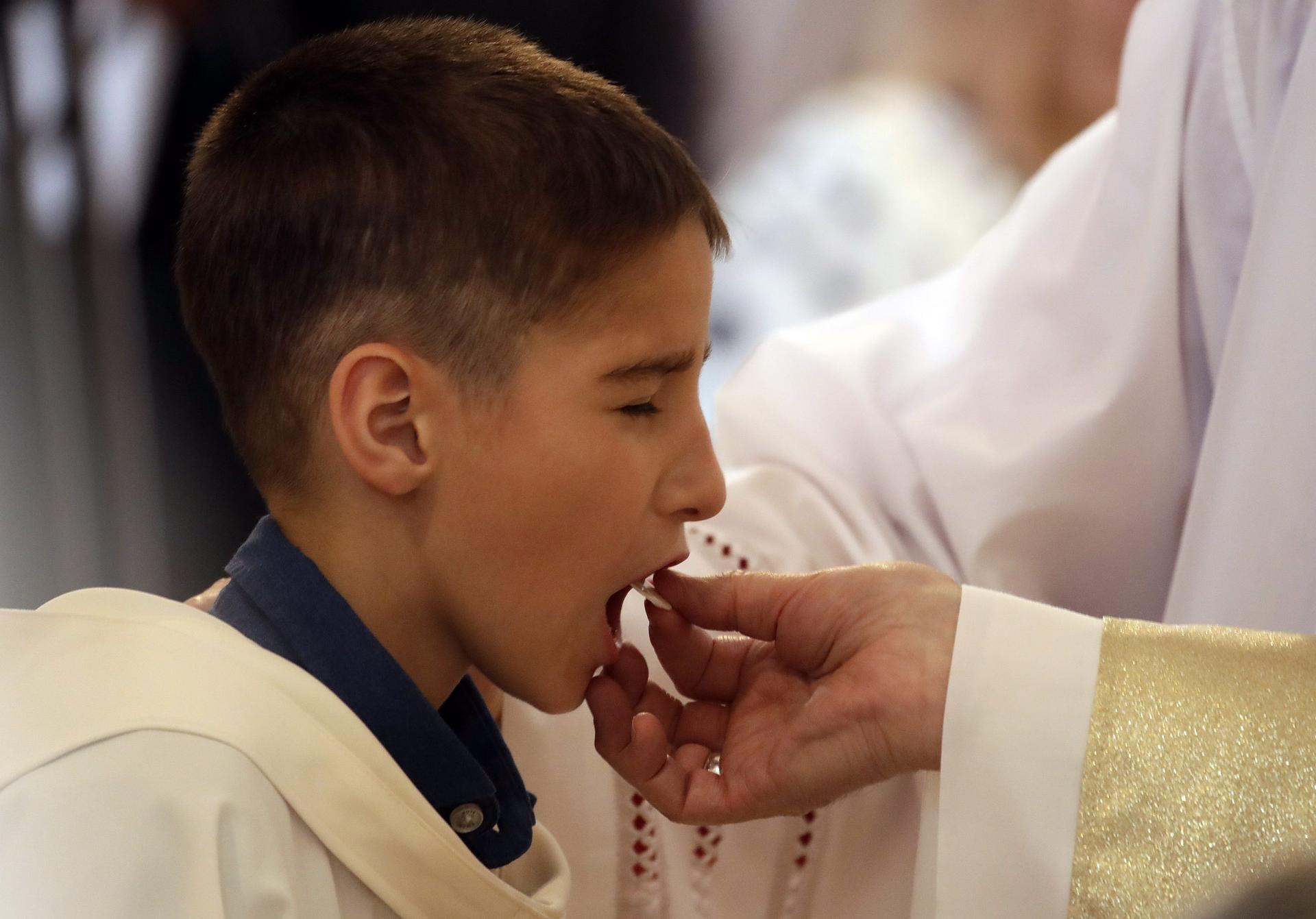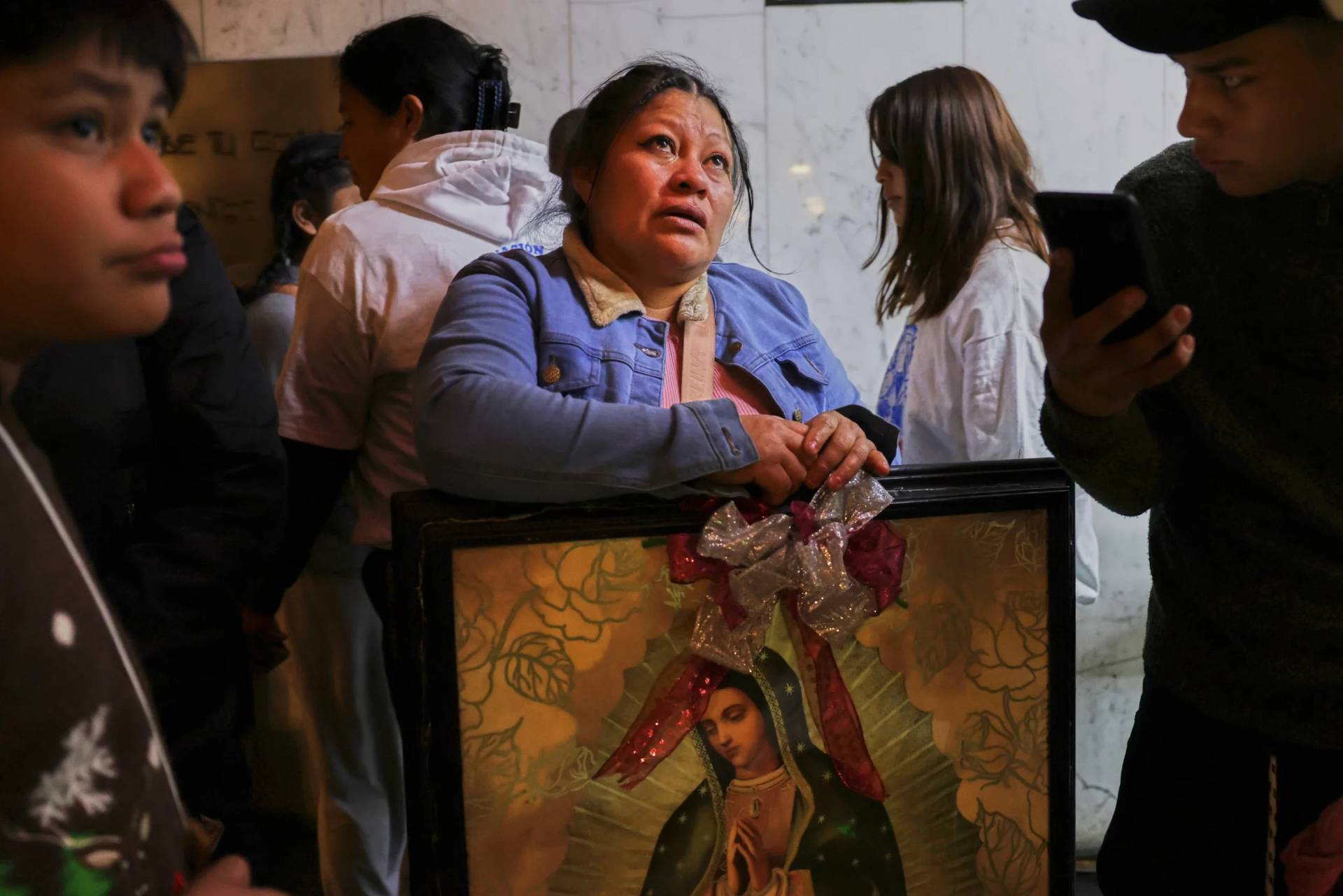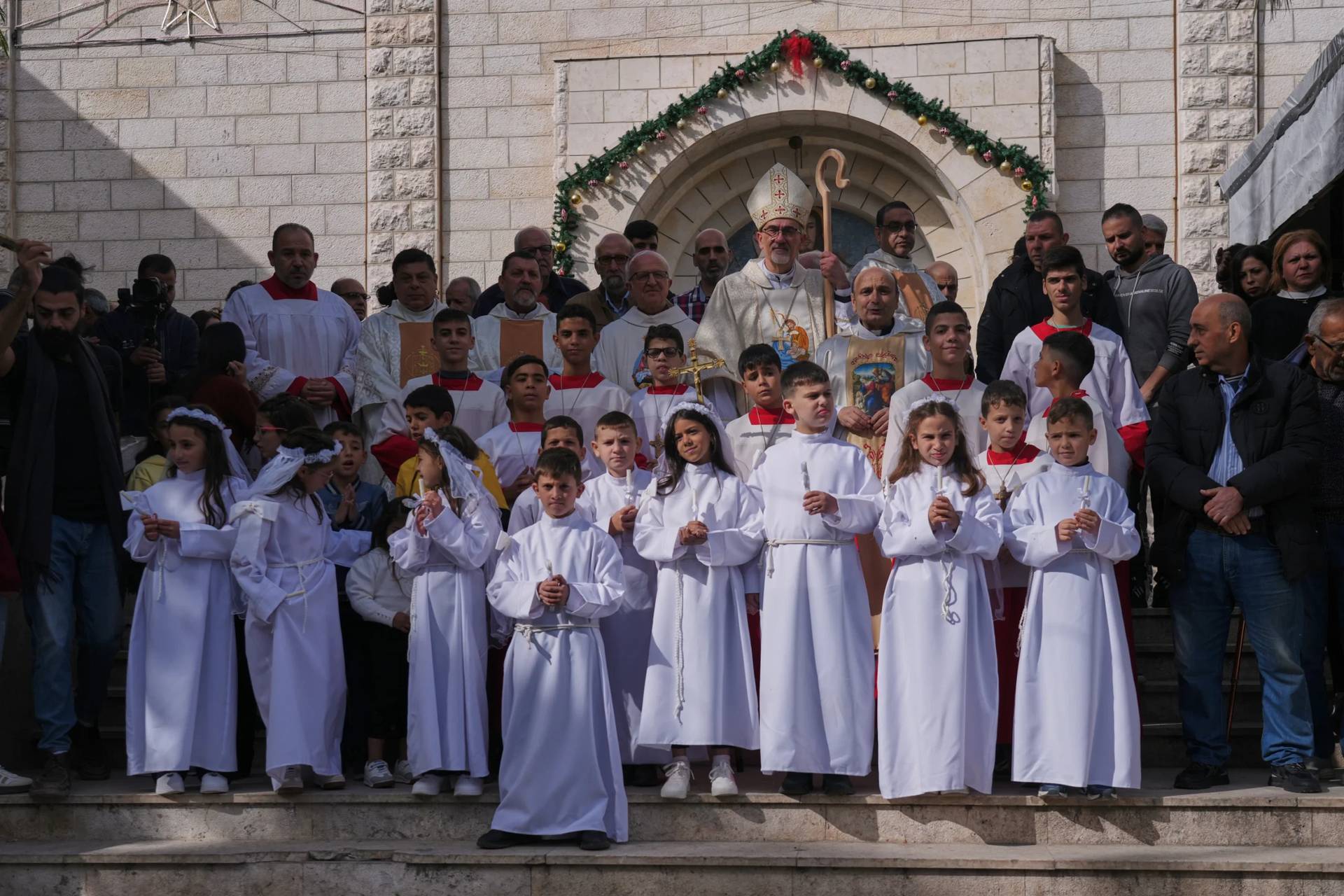ROME – Results from a new Pew survey show that Jews are the most knowledgeable among America’s religious communities about world religions, while only half of American Catholics know what their own Church teaches on core principles such as communion.
According to the survey, exactly 50 percent of Catholics in the United States correctly answered a question about Church teaching on transubstantiation – the belief that during Mass, the bread and wine become the actual flesh and blood of Jesus Christ.
“The other half of Catholics incorrectly say the Church teaches that the bread and wine used in Communion are just symbols of the body and blood of Christ,” and a small percentage are not sure, the study found.
Around 34 percent of Americans overall were aware of this teaching, but more than half showed knowledge of the Catholic concept of purgatory as a place of purification for souls who have died before they reach heaven. Nearly a quarter of participants said they believed purgatory was a place of damnation for evildoers.
Only 71 percent of Catholics got the purgatory question right, which, while not a perfect score, significantly outweighs the number of Catholics who showed a correct understanding of Church teaching on the Eucharist.
Published on Tuesday, July 23 by the Pew Research Center, a nonpartisan think tank, the new report measures Americans’ knowledge about the beliefs and traditions of the world’s major religions.
The online survey ran Feb. 4-19, during which some 10,971 people responded. It was conducted primarily among members of Pew’s American Trends Panel and supplemented by interviews with members of the Ipsos Knowledge Panel.
It consisted of 32 questions, including 14 on the Bible and Christianity, 13 on other world religions – four on Judaism, three on the religious composition of specific countries, two for both Islam and Hinduism, and one for both Buddhism and Sikhism. There were also two questions on atheism and agnosticism, two on the size of religious minorities in the U.S. adult population, and one about religion and the U.S. Constitution.
This year’s survey is the second Pew study analyzing American’s knowledge about religion, following an initial survey in 2010.
Among other things, it analyzes the correlation between levels of religious knowledge and religious affiliation, diversity of social networks, age, education, and attitudes toward other religious groups.
According to the findings, the average U.S. adult was able to answer fewer than half the religious questions correctly, with just nine percent able to answer three-quarters correctly and less than one percent earning a perfect score.
The report showed that U.S. adults are generally able to answer basic questions about the Bible and Christianity and they showed knowledge of a few facts about Islam, but they were less familiar with other world religions.
Of those who participated, Jews, atheists, agnostics and evangelical Protestants scored higher. Catholics, mainline Protestants and Mormons were roughly in the middle, while young adults and ethnic and racial minorities emerged as less knowledgeable. On average, men scored better than women, and those over 65 scored better than those under 30.
Perhaps unsurprisingly, Evangelical Protestants emerged as the most knowledgeable about the Bible and Christianity, followed by Mormons, while Jews took top place in knowledge of other world religions.
Not enough interviews with Muslim, Hindu, Buddhist or Sikh participants were done to allow for accurate analysis of the statistics on their responses, according to the report.
In terms of wider Christianity, only one-in-five Americans were aware that Protestantism traditionally teaches sola fide, meaning salvation comes through faith alone, and others mistakenly believe that sola fide is a Catholic teaching.
Roughly the same percentage of people were familiar with the “prosperity gospel” principle, which is the belief that strong faith is correlated with God’s blessings of financial success and good health.
When it comes to Judaism, just three-in-ten Americans or fewer know when Sabbath begins, and that Rosh Hashana is the Jewish New Year.
Basic questions such as “What is an atheist?”, “What is commemorated on Easter Sunday” and “What is Ramadan?” were for the most part answered correctly, while more specific questions on rules for religion and holding office, the percentage of Jews living in the U.S. or texts associated with the Hindu religion, were answered incorrectly.
Eight in ten American adults were able to recognize the Easter holiday as celebrating Jesus’ resurrection, and they showed knowledge of the Trinity and major biblical figures such as Moses, Abraham and King David. However, only three in ten knew basic facts about other world religions with the exception of Islam, about which Americans demonstrated more knowledge.
Most Americans were unaware that Jews and Muslims constitute less than five percent of the U.S. population each, assuming that the numbers were higher.
In addition to religious affiliation, other factors the study found which influenced religious knowledge were levels of education and the religious diversity of one’s social circles.
Overall, college graduates got higher scores than people with a high school education or less. The report also noted that Jews, atheists and agnostics tend to be highly educated, which could be a factor in their high scores.
Some statistics seemed logical, such as the finding that taking a world religion class increased one’s likelihood of answering questions correctly, or the fact that increased time invested in learning and studying one’s religion heightened a person’s religious knowledge.
The study also found that higher religious knowledge was linked with more favorable views of religious groups.
Asked to measure their thoughts about religion on a “feeling thermometer,” participants marked their place on a scale of 0-100 degrees, with 0 being cold and negative, and 100 being warm and positive.
Overall, Americans gave Jews the best score at 63 degrees, followed by Catholics and mainline Protestants. Buddhists, evangelical Christians and Hindus all hit the mid-50s, while Mormons, atheists and Muslims were near the exact 50 mark.
In general, the study showed that higher religious knowledge correlated with more negative feelings about evangelical Christians, who were rated highest by those with the lowest survey scores.
The report offered a disclaimer about the findings, insisting that despite survey results, there is “no objective way to determine how much the U.S. public should know about religion, or what are the most important things to know.”
Questions asked, it said, are intended to represent a body of general knowledge about religion, but they are “not meant to be a list of the most essential facts.”
Follow Elise Harris on Twitter: @eharris_it
Crux is dedicated to smart, wired and independent reporting on the Vatican and worldwide Catholic Church. That kind of reporting doesn’t come cheap, and we need your support. You can help Crux by giving a small amount monthly, or with a onetime gift. Please remember, Crux is a for-profit organization, so contributions are not tax-deductible.

















